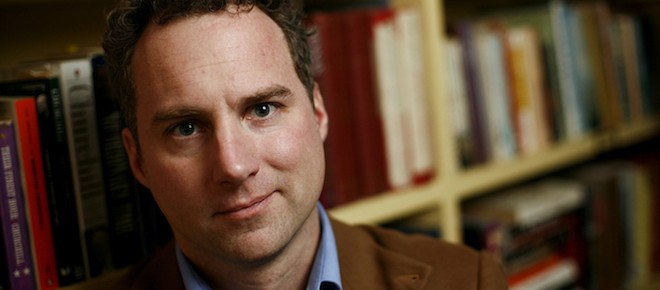What most Canadians don’t know about Africa
Building Markets CEO Scott Gilmore on a continent that has quietly redefined itself
Share

In 2014, the gap between what Canadians think they know about Africa and what is actually happening will begin to narrow. For most, the continent only brings to mind starving children and ruthless warlords. In fact, Africa has changed dramatically and it is increasingly important to Canada’s prosperity and security.
I have been travelling and working in Africa since I was a teenager. On my first visit, not long after Bob Geldof released the Band Aid single “Do They Know It’s Christmas?”, I was surprised to find thriving cities instead of refugee camps.
Twenty-five years later I run Building Markets, a non-profit social enterprise that fights poverty in the developing world by connecting local entrepreneurs to global buyers. Now, when I travel to Africa, I do not bring malaria tablets. I bring investors who recognize something that most Canadians do not yet see. Africa matters.
The continent has quietly redefined itself from basket case to success story. Civil wars have largely given way to stability, which in turn allowed for economic reforms. Trade and investment followed and the growing prosperity is transforming everything.
African-bound Canadians were once mostly aid workers and brave tourists. Now, they are more likely to be business executives. Bombardier Aerospace, for example, has prioritized the African market, for good reason. In the last five years, Nigerians alone spent over $7 billion on private jets.
Increasingly, the continent will matter to Canada. And although this new and more complicated Africa has not yet caught the notice of most Canadians, it is already commanding attention from Ottawa and Bay Street.
The newly merged Department of Foreign Affairs, Trade and Development (DFATD) will be reviewing its list of priority countries in 2014. Africa’s frontier economies will feature prominently as annual bilateral trade surpasses $20 billion.
The continent is becoming an economic powerhouse. Next year it will produce 9 million barrels of a oil a day, rivaling Saudi Arabia and Russia. The World Bank predicts a third of its 55 economies will expand by 6% or more (more than twice what is projected for Canada).
The resource sector is leading this surge, and will continue to do so in 2014, in spite of a slump in commodity prices. But the African economy is diversifying and two thirds of its growth has come from agriculture, manufacturing, and other industries.
African trade has quadrupled since 2000. And next year will see this expand further with the signing of the Tripartite Free Trade Agreement, encompassing 26 economies, half a billion people, and a combined GDP of over $600 billion.
But Africa will matter for more troubling reasons, too. This economic boom is bypassing the rural poor and flowing largely to the growing cities. The African Development Bank calculates that the continent now holds six of the world’s ten most unequal countries.
The emerging middle class is still relatively fragile and poor, being defined as those making between $2 and $20 per day. While some are predicting an end to extreme poverty by 2030, next year almost one out of every two Africans will still struggle on occasion to find food, water and medicine.
Despite the precipitous decline in the number of political coups since 1990, instability remains in some areas, such as the Central African Republic, which will further exacerbate an already dire humanitarian crisis in 2014. As Canada’s military finally pulls out of Afghanistan, its allies may call upon it to contribute to peacekeeping missions like the one in the Democratic Republic of the Congo.
Terrorism will also continue, led by groups such as Boko Haram in Nigeria. Kidnappings and large-scale attacks like the Westgate siege in Nairobi will sadly persist. Canada’s concerns about African piracy will deepen in 2014. While this was once limited to the Horn of Africa, attacks in West Africa are now more numerous and security firms are predicting that next year they will double.
Conversely, Canada matters more and more to Africa, too. Governments will continue to appreciate the $1.9 billion in official aid Canada gives each year. DFATD’s new emphasis on innovation, and private sector partnerships will resonate with leaders grappling with growing youth unemployment. But they will increasingly covet our investment dollars, which are over three times larger than our aid. Few Canadians yet realize that Canada is one of the biggest investors in the continent, rivaling even China.
Building Markets has taken notice of this new Africa. We are evolving past the charitable model and are now partnered with City Financial, a Canadian-led investment firm to launch an Africa-focused private equity fund in 2014. The Live Aid concerts are no longer needed; investors are replacing donors. Even Bob Geldof has set up his own African investment fund.
Hopefully, in 2014, more Canadians will notice this rising giant, too, and realize Africa is no longer a charity case but has become an important global partner.
Scott Gilmore is a former diplomat and the founder of Building Markets. This post replaces an earlier version published on Jan. 1.